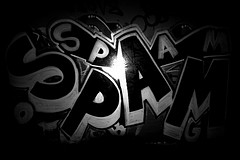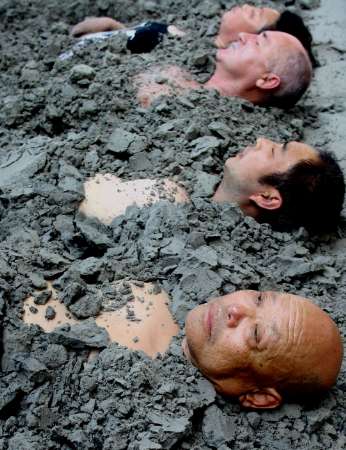Copyright 2007-25 Digital Media Law Project and respective authors. Except where otherwise noted,
content on this site is licensed under a Creative Commons Attribution-Noncommercial-ShareAlike 3.0 License: Details.
Use of this site is pursuant to our Terms of Use and Privacy Notice.
content on this site is licensed under a Creative Commons Attribution-Noncommercial-ShareAlike 3.0 License: Details.
Use of this site is pursuant to our Terms of Use and Privacy Notice.


 The U.S. Department of State maintains a
The U.S. Department of State maintains a  Imagine you live in a country where criminal attacks on civilians are alarmingly familiar, and reliable reporting from the local media is regrettably unfamiliar. You hear about an attack on your local school, so you take to the Internet to spread the word on Facebook and Twitter to warn people before it's too late. Mercifully, the report you heard was mistaken, and everything's okay...
Imagine you live in a country where criminal attacks on civilians are alarmingly familiar, and reliable reporting from the local media is regrettably unfamiliar. You hear about an attack on your local school, so you take to the Internet to spread the word on Facebook and Twitter to warn people before it's too late. Mercifully, the report you heard was mistaken, and everything's okay...
 If you thought a spat between Buddhists couldn't devolve into a federal cyberstalking case of dubious constitutionality, consider the following.
If you thought a spat between Buddhists couldn't devolve into a federal cyberstalking case of dubious constitutionality, consider the following.
 When the
When the  The regulation of commercial speech on social media sites continues to increase. In late March, a federal court in California held that Facebook postings fit within the definition of "commercial electronic mail message" under the Controlling the Assault of Non-Solicited
Pornography and Marketing Act ("CAN-SPAM Act;"
The regulation of commercial speech on social media sites continues to increase. In late March, a federal court in California held that Facebook postings fit within the definition of "commercial electronic mail message" under the Controlling the Assault of Non-Solicited
Pornography and Marketing Act ("CAN-SPAM Act;"  The Federal Trade Commission
The Federal Trade Commission  What are the differences between “special form” (stylized, design, logo) trademarks and “standard character” (word) trademarks?
What are the differences between “special form” (stylized, design, logo) trademarks and “standard character” (word) trademarks? "Man goes to doctor. Says he's depressed. Says life seems harsh and cruel. Says he feels all alone in a threatening world where what lies ahead is vague and uncertain. Doctor says 'Treatment is simple. Great clown Pagliacci is in town tonight. Go and see him. That should pick you up.' Man bursts into tears. Says 'But, doctor...I am Pagliacci.'" -
"Man goes to doctor. Says he's depressed. Says life seems harsh and cruel. Says he feels all alone in a threatening world where what lies ahead is vague and uncertain. Doctor says 'Treatment is simple. Great clown Pagliacci is in town tonight. Go and see him. That should pick you up.' Man bursts into tears. Says 'But, doctor...I am Pagliacci.'" -  Critics have always run the risk of retaliation. They have not, however, always run the risk of having their personal phone number micro-blogged to over 115,000 people in a split second.
Critics have always run the risk of retaliation. They have not, however, always run the risk of having their personal phone number micro-blogged to over 115,000 people in a split second.
 CMLP contributor Eric P.
CMLP contributor Eric P.
 The drafting of the Anti-Counterfeit Trade Agreement (ACTA) isn’t
The drafting of the Anti-Counterfeit Trade Agreement (ACTA) isn’t  Over the past year, we've watched the courts struggle with Internet and social media use involving a variety of actors.
Over the past year, we've watched the courts struggle with Internet and social media use involving a variety of actors.
Description:
According to SF Weekly, on July 3, 2011, a homeless man named Charles Hill was shot to death by police officers for the San Francisco Bay Area Rapid Transit District ("BART"). Two and a half years earlier, BART police used lethal force against 22-year old Oscar Grant. Both cases have lead activist groups to stage protests against BART and its police force.
On July 11, 2011, protesters with No Justice, No BART and other organizations staged a protest in the Civic Center Station, where Hill was shot. According to SF Gate, approximately 100 protesters attended and some blocked the doors of trains, leading BART to temporarily close the station.
According to a BART press release, BART and San Francisco police officers learned of a further protest planned for August 11, 2011 early in the week of August 8th. They believed that protesters were planning to coordinate protests at the station using cell phones, and in an attempt to disrupt that coordination shut down cellular service to specific stations in the BART system. According to Scientific American, BART did this by disabling power to the cell phone and wireless network base stations it owned in the underground system. According to CBS San Francisco, the August 11th protest never materialized.
According to Mashable, web activist group Anonymous responded to BART's closure of cellular service by shutting down the consumer-relations website mybart.org on August 14, 2011, leading to the website's indefinite suspension. Anonymous also organized further protests on August 15, 2011, leading to additional station closures, though no reported cell phone service disruption.
The Bay Citizen reports that the FCC is investigating BART's decision to disable cell phone service in the stations. On August 29, 2011, a group of public interest organizations led by Public Knowledge filed a petition for declaratory ruling to the FCC, arguing that BART's actions violated the Communications Act of 1934.